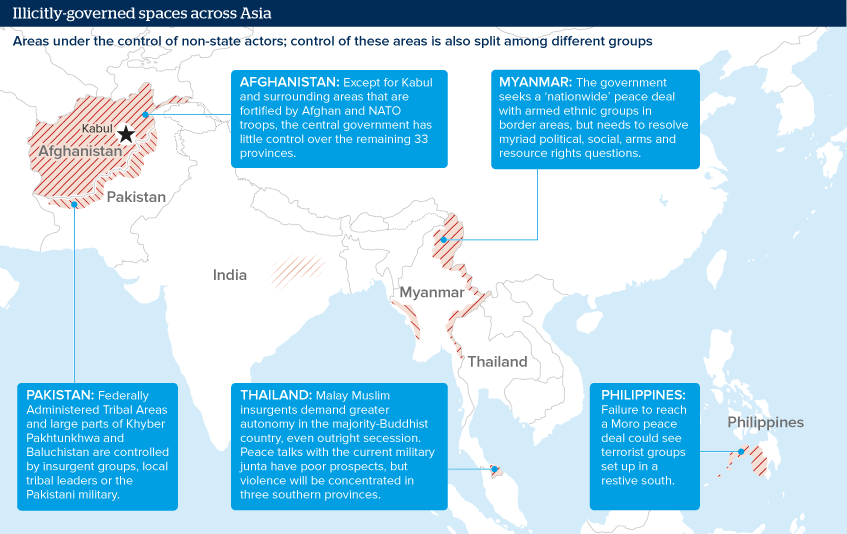'Shadow governance' risks in Asia are localised
Unlike in the Middle East, 'ungoverned spaces' in Asia are fewer and geographically concentrated

Source: Oxford Analytica
Outlook
Whereas popular uprisings and civil wars have significantly eroded -- or altogether dismantled -- central governance in large parts of the Middle East, the relative political stability of post-colonial Asia is facilitating the expansion of state control. Except Afghanistan and tribal parts of Pakistan where modern governance is a long-term aspiration not a reality, Asian states ranging from India and Vietnam to China and the Maldives firmly control most -- if not all -- of their respective territories.
State control is often weak, for example in insurgency-marred Myanmar, and occasionally endangered, for example by Maoist rebels in eastern and central India. Yet overall political and economic stability is enabling civilian and security authorities to prevent the degeneration of contested areas into illicitly-governed spaces.
Impacts
- India's development-oriented approach has neutralised the Maoist insurgency, although sporadic attacks will occur.
- North Korea's collapse would create an ungoverned space, but only temporarily; Chinese and/or South Korean intervention would be speedy.
- The Pakistani army's counterinsurgency campaign in tribal areas promises some security gains.
- Contested areas could provide scope for actors such as Islamic State group to expand their presence.